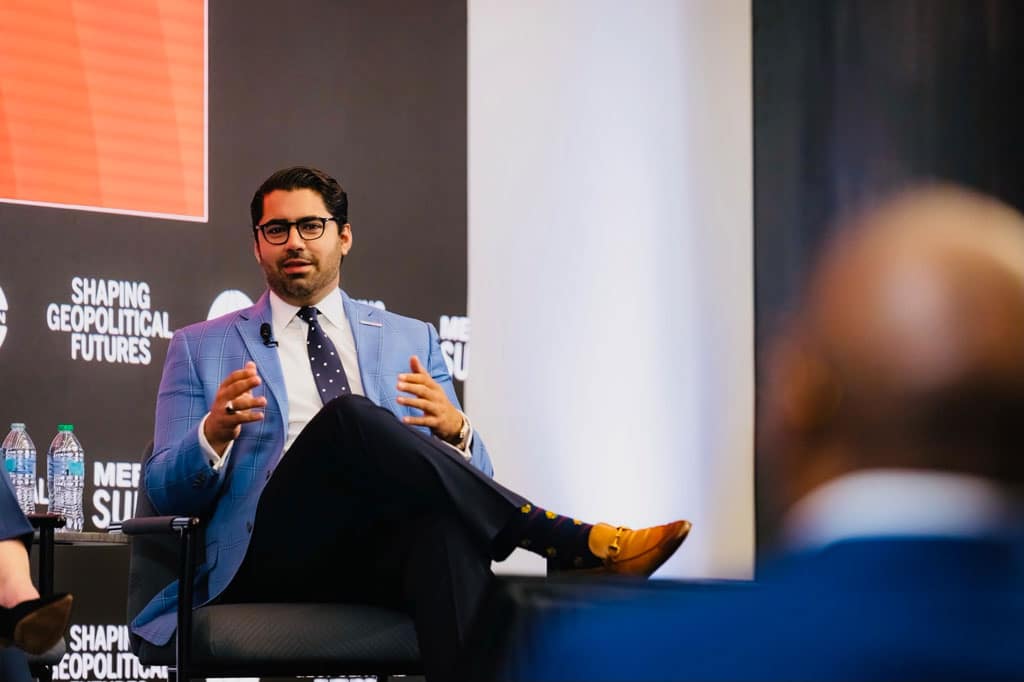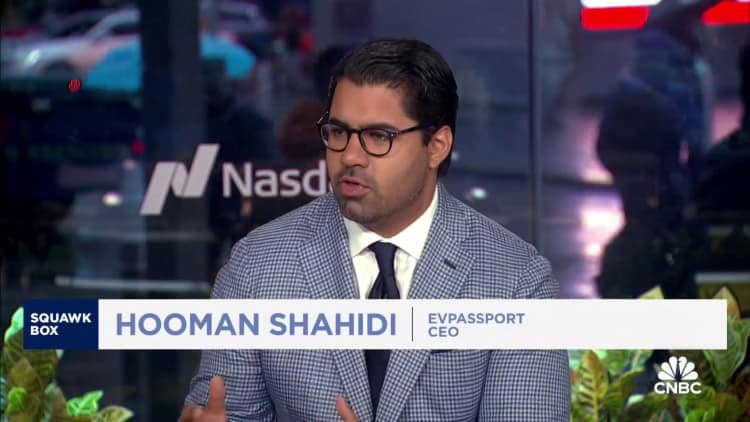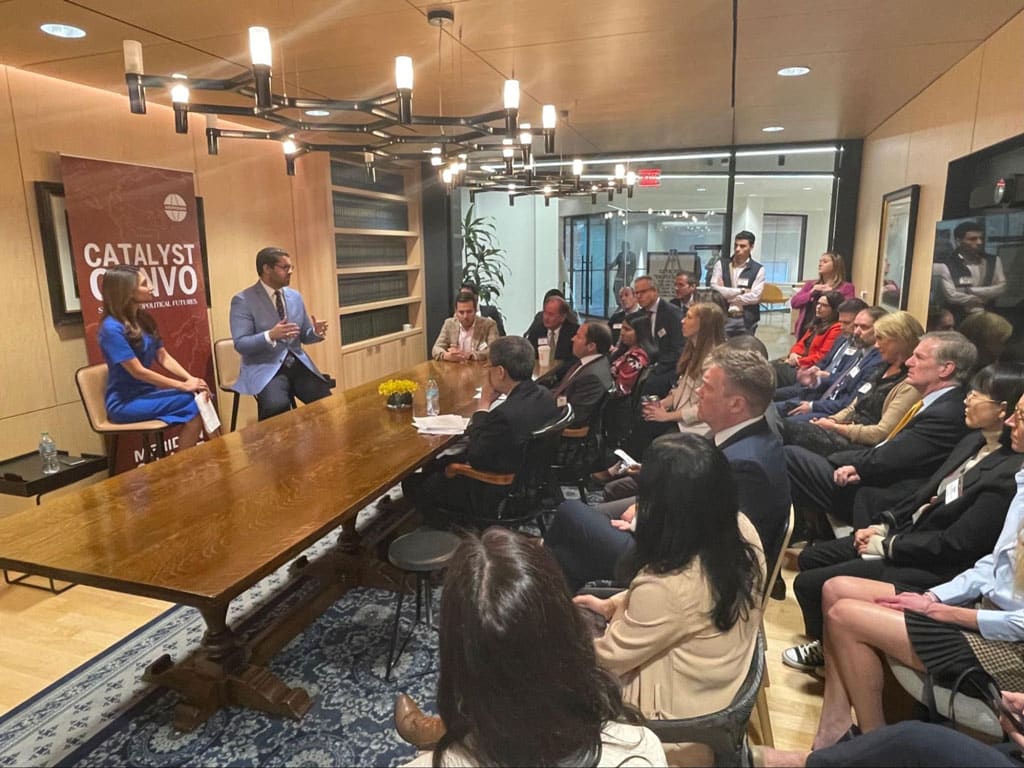Innovation Diplomacy and Shaping Geopolitical Futures: Insights from Hooman Shahidi at the 2024 Meridian Summit

Shifting global dynamics are influencing markets, investment opportunities, and regulatory climates. In the past year, landmark democratic elections and major global events have reshaped geopolitics, creating unprecedented uncertainty. As global dynamics evolve, the future relies on leaders from the private and public sectors who can navigate an increasingly complex environment and drive positive change.
Last month in Washington, D.C., the world’s most influential government, political, and business decision-makers convened in a neutral, nonpartisan forum to exchange ideas and collaborate on solutions to today’s most pressing global challenges and opportunities. Among the 32 distinguished speakers at the 13th Annual 2024 Meridian Global Leadership Summit was climate tech entrepreneur Hooman Shahidi. From the global stakes of semiconductor supply chains to collaborative investment for growth, Shahidi addressed some of the most pertinent and urgent issues, ‘Shaping Geopolitical Futures,’ which was the theme of the Summit.
But, where there is adversity, there is opportunity. Here are five key takeaways from Shahidi’s sessions at the Meridian Summit.
Collaboration Drives Growth
As technology evolves, semiconductors have become the backbone of various industries, from automotive to consumer electronics. An intimate conversation on the global stakes of semiconductor supply chains co-hosted by Shahidi explored the global stakes of semiconductor supply chains; he emphasized that China controls over 70% of the rare earth minerals essential for semiconductor production. As the world transitions into the Fifth Industrial Revolution (5IR)—merging purpose with technology—the demand for these minerals has never been higher. Shahidi advocated for a “plus one” strategy, highlighting the private sector’s role in job creation and innovation. He stressed that U.S. collaboration, specifically with partners in Africa and South America, could mitigate reliance on Chinese supply chains while enhancing local economies.
In a separate panel discussion on collaborative investment, Shahidi was joined on stage by H.E. Lui Tuck Yew, Ambassador, Embassy of Singapore, and H.E. Svanhildur Hólm Valsdóttir, Ambassador, Embassy of Iceland. Their conversation underscored the essential role that collaboration between businesses, governments, and financial institutions plays in addressing complex challenges like climate change, technological innovation, infrastructure development, and sustainable, long-term economic growth.

Governance Strengthens Business Innovation
“Whenever there’s adversity, there’s always opportunity,” Hooman Shahidi stated during his conversation about semiconductor supply chains. However, the lack of governance surrounding American companies’ dealings with Chinese firms poses risks. He argued for the necessity of regulation to create a safety net that allows businesses to understand risks while innovating and expanding.
In his separate panel discussion, Shahidi underscored the value of private and public collaboration in enabling business innovation…”That’s where the public sector takes flight,” Shahidi commented.
The Future of Transportation is Electric
Shahidi also delved into the future of electric vehicles and the role of EVPassport, which Shahidi described as a pioneering electric vehicle charging network. He co-founded EVPassport in 2020 and serves as the company’s President and CEO, which operates in three countries and 35 states, providing a comprehensive infrastructure-as-service (IaaS) solution that includes hardware, software, and connectivity for asset holders. Shahidi expressed optimism about the electrification of vehicles, citing growing sales from companies like GM and the importance of plug-in hybrids in driving adoption.

Alignment of Values is Important
“Having alignment of values is really, really important,” Shahidi commented during his discussion on collaborative investment. “Whether it’s your customers, partners, or government, you must have the same values.” He attributed current chaos in the U.S. value system partly to having misaligned values, adding that “Chaos in our value system [is] going to inhibit innovation.”Shahidi ended on an optimistic note, saying that for him and EVPassport, “It’s about ensuring we have aligned values in the way we’re going to market and creating innovation. When you do that, and you deliver great convenience, you can arguably change the world.”
As the global landscape shifts, semiconductor supply chains and collaborative investment will remain focal points for policymakers, industry leaders, and consumers alike. Discussions like the ones with Shahidi in Washington are critical to helping us understand and solve the geopolitical challenges we face.
Have you read?
Countries ranked by the percentage of the workforce that is made up of women.
Countries with the most (and least) personal space.
World’s Most (And Least) Religious Countries.
Bring the best of the CEOWORLD magazine's global journalism to audiences in the United States and around the world. - Add CEOWORLD magazine to your Google News feed.
Follow CEOWORLD magazine headlines on: Google News, LinkedIn, Twitter, and Facebook.
Copyright 2025 The CEOWORLD magazine. All rights reserved. This material (and any extract from it) must not be copied, redistributed or placed on any website, without CEOWORLD magazine' prior written consent. For media queries, please contact: info@ceoworld.biz








